28 Sep 5 Types of Employee Benefits You Need
Employee Benefits play a vital role when it comes to attracting the right pool of talent as well as retaining the existing talent needed to run a successful business. However, before you focus on offering additional perks, you might first want to take a look at the benefits that your employees really need in their package.
In this article, we have put forward five common types of employee benefits as a suggestion that each business should consider providing to their employees.
- Medical
The most common and essential type of benefits businesses can offer their employee is medical coverage. Healthcare costs, such as health insurance, routine medical checkup visits to doctors and hospitals, dental work, eye care, and medications, are increasing rapidly. Employees can find it difficult to keep up with them. Hence, proper medical coverage can prove to be an attractive point.
In order to provide help to deal with these recurring expenses, employers can offer savings plans, such as Health Reimbursement Account. This type of savings accounts will cover expenses like prescriptions, eye care, as in eye-sight gasses and contact lenses. Additionally, it will also include first aid kits as well as daycare expenses.
- Life
Another common and essential employee benefit is life insurance. It is also known as accidental death and dismemberment insurance. In case of the unfortunate demise of an employee, life insurance benefits will cover funeral costs and provide monetary assistance to the employee’s family. This way, an employee can rest assured that at least their family won’t face a financial burden in case of any unfortunate incident.
- Disability
This is another benefit that should be on the employers’ priority list. They can offer both short-term and long-term disability insurance to their employees.
In case an employee is injured or has been bedridden due to prolonged illness, the benefit will provide assistance throughout the period they are unable to render their duties.
Speaking of this, a short-term disability pays a portion from the employee’s salary during temporary sickness. For instance, if an employee is unable to work due to a hernia, they will end up receiving short-term disability monetary benefits.
On the other hand, if there is a permanent illness or injury, the employee receives a long-term disability monetary assistance.
- Retirement
This is one benefit that every employee looks forward to as they are funds that are provided to set aside so that people are left with a source of income as their career ends.
The most common type is the 401(k) plan. Through this, employees can deduct a specific number percentage from each paycheck to put aside as retirement savings.
- Paid Time Off
Paid time off, also known as PTO, is given to employees while they work. The three common types include holidays, sick, and vacation leave. Most employers provide them as separate benefits.
Other than this, sick leave and vacation are often provided as a combination or bundled into one account to the employees.
To discuss your employee benefits options, talk to us for a free consultation.
To find out more, contact one of our talented Risk Advisors today!


No Comments